If you’re into your natural remedies, you’ve probably heard of some of the benefits of ashwagandha before. But what exactly is ashwagandha extract (commonly known as Indian Ginseng) and what are the benefits of ashwagandha for men in particular? We’ve got the answers for you below, including the health benefits of ashwagandha, where to buy ashwagandha extract, the potential side effects and more.
Table of Contents
- Benefits of Ashwagandha for Men
- 1. Relieves Stress and Anxiety
- 2. Lowers Blood Sugar and Fat
- 3. Increases Muscle and Strength
- 4. Supports Heart Health
- 5. Helps Improve Depression
- 6. Helps Relieve Adrenal Fatigue
- 7. Boost Fertility and Increase Testosterone Levels
- 8. Sharpens Focus, Memory & Cognitive Function
- 9. Boosts Immune Function
- 10. Increases Stamina, Endurance & Physical Performance
- What is Ashwagandha?
- What is Ayurvedic Medicine?
- How to Take Ashwagandha Supplements
- Where to Buy Ashwagandha
- Risks and Side Effects of Ashwagandha Root
- Things to Consider Before Taking Ashwagandha
- Alternatives to Use of Ashwagandha
- Benefits of Ashwagandha for Men FAQs

Benefits of Ashwagandha for Men
As a supplement, Ashwagandha has been used for centuries and recent studies have supported its use in basic medical practice, but what exactly does it do? Below, we’ve outlined 10 potential health benefits of Ashwagandha, as indicated by peer-reviewed journals and medical associations. Importantly, every body is different and as such, each reaction can be different. Be sure to consult your doctor before use and be vigilant whenever working with new supplements.
1. Relieves Stress and Anxiety
One of the most common uses for ashwagandha is to help reduce stress and anxiety in men (based on science, yo!) Ashwagandha is known as an “adaptogen,” which means it’s really good at helping your body handle stress. By keeping stress hormones like cortisol in check, it can help promote a sense of calm and peace – keeping you stress-free throughout the day. So, if you’re going through a particularly stressful or anxious period in life, Ashwagandha root may help you embrace your inner zen.
2. Lowers Blood Sugar and Fat
Research suggests ashwagandha is pretty nifty at regulating blood sugar by making your cells more responsive to insulin. That means fewer blood sugar spikes. Plus, studies also show it may lend a helping hand in managing those stubborn fat levels. So, if you’re watching your waistline or your overall health, ayurvedic medicine may help!
3. Increases Muscle and Strength
We know supplements like creatine can help you grow your muscles – but ashwagandha may be another solution. Studies suggest it’s a great supplement for helping to build muscle and boost strength, especially when you’re hitting the gym regularly. So, if you’re chasing those gains, Ashwagandha might just be the secret ingredient you’ve been missing.
4. Supports Heart Health
Your heart deserves some love too, right? When we’re younger, we don’t often think about our heart health, but we should. After all, it’s the only one we’ve got. Ashwagandha may help promote better heart health in the long run. It’s known for potentially lowering cholesterol levels, especially the not-so-friendly LDL cholesterol. A happy heart is a healthy heart, and Ashwagandha may just be your heart’s best friend.
5. Helps Improve Depression
Along with helping reduce stress and anxiety in men (and women), ashwagandha may also be a natural mood booster to help during periods when you’re feeling low. Some studies have found that ashwagandha can help improve symptoms of depression by playing with the levels of feel-good neurotransmitters like serotonin and dopamine. Of course, if you’re experiencing ongoing feelings of depression/sadness or anxiety, it’s always best to speak with a healthcare professional.
6. Helps Relieve Adrenal Fatigue
Do you often find yourself feeling slow and lethargic? Ashwagandha’s adaptogenic powers make it an excellent choice for tackling adrenal/stress-related fatigue. It’s like a cup of coffee for your adrenal glands, helping you regain your energy by dealing with chronic and stress-related disorders in a balanced way.
7. Boost Fertility and Increase Testosterone Levels
Looking to welcome a newborn in the near future? Well, ashwagandha may help you and your partner on your baby-making journey. Some studies suggest that ashwagandha can in fact be good for reproduction. It helps improve sperm quality in infertile men by balancing hormone levels. In one study, 14% of men’s partners got pregnant during the research.
8. Sharpens Focus, Memory & Cognitive Function
Not only is ashwagandha good at reducing stress, but it’s also a great way to give your brain a natural boost. Around 600 mg of ashwagandha a day (300 mg of ashwagandha 2 x per day) is thought to be great for mental clarity. It can improve focus, memory, and other cognitive functions and brain function too. So, if you’ve got tasks that need your brain firing on all cylinders, Ashwagandha might be just what you need.
9. Boosts Immune Function
Ashwagandha is great for your immune system. It fights stress, and inflammation, and tosses in some antioxidants to keep things in top shape. Withania somnifera ashwagandha contains immune-modulating peptides that help your body’s defences stay sharp. And don’t forget the bonus: it helps you catch some quality ZZZs, which your immune system loves.
10. Increases Stamina, Endurance & Physical Performance
If you want a natural workout boost, ashwagandha may be just the ticket. Increasing stamina and endurance is one of the well-known effects of ashwagandha. It fights off exercise-induced fatigue, giving you the stamina and endurance to push through those tougher workouts. So, if you’re aiming for longer, more effective sessions, consider a daily dose of ashwagandha.
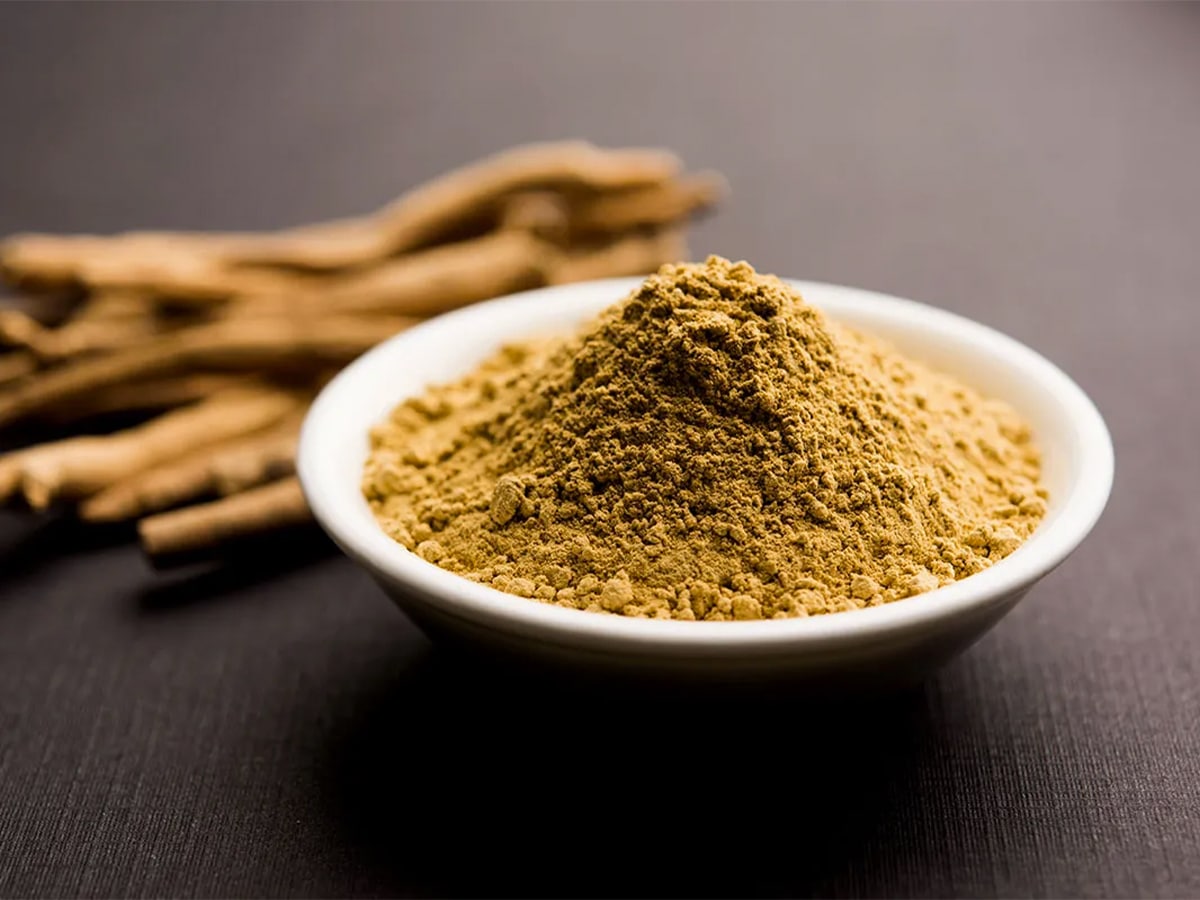
What is Ashwagandha?
In short, ashwagandha is an evergreen shrub that grows in Asia and Africa. Scientifically known as Withania Somnifera, it’s is also a powerful herb that has been a staple in Ayurvedic medicine for centuries.
It’s known for its incredible health benefits and adaptogenic properties (which basically means it helps the body adapt to stress and anxiety), its anti-inflammatory properties and its ability to promote overall well-being.
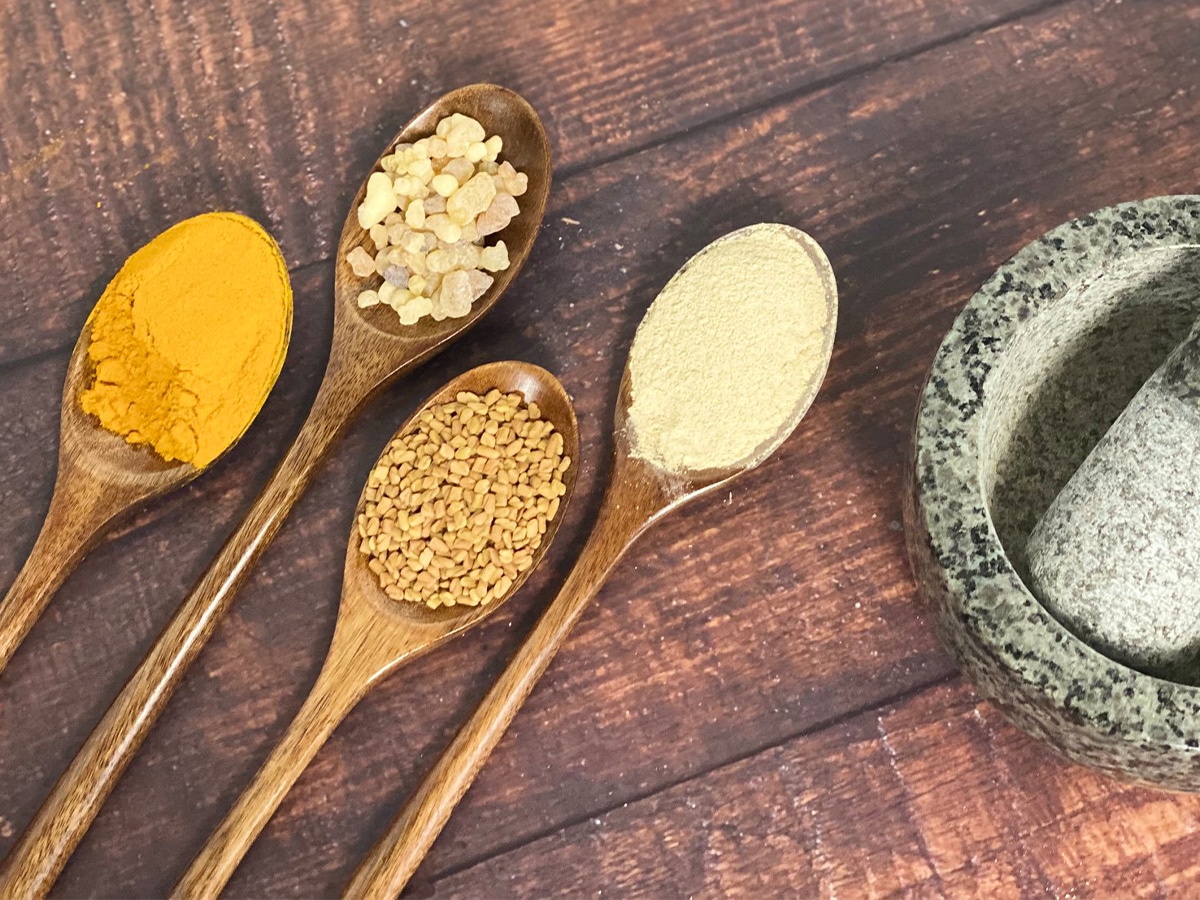
What is Ayurvedic Medicine?
Ayurvedic Medicine is an ancient healing system that traces its roots back more than 3,000 years to India. It’s a holistic approach to health that seeks to bring harmony to your body, mind, and spirit.
The term “Ayurveda” means “the science of life” in Sanskrit, and that’s precisely what it’s all about. Rather than just treating symptoms, Ayurveda focuses on understanding your unique constitution and maintaining overall well-being.
In Ayurveda, you’re not a one-size-fits-all patient, unlike traditional medicine. It recognises that each person is different, and it considers your doshas, which are your individual body and mind types. The goal is to keep you in balance and in good health.
This ancient system uses a combination of natural remedies, herbal treatments, dietary guidance, yoga, and meditation to achieve its aims. So, while Ayurvedic Medicine has a long history, it’s still relevant today as a holistic and personalised approach to health and well-being.
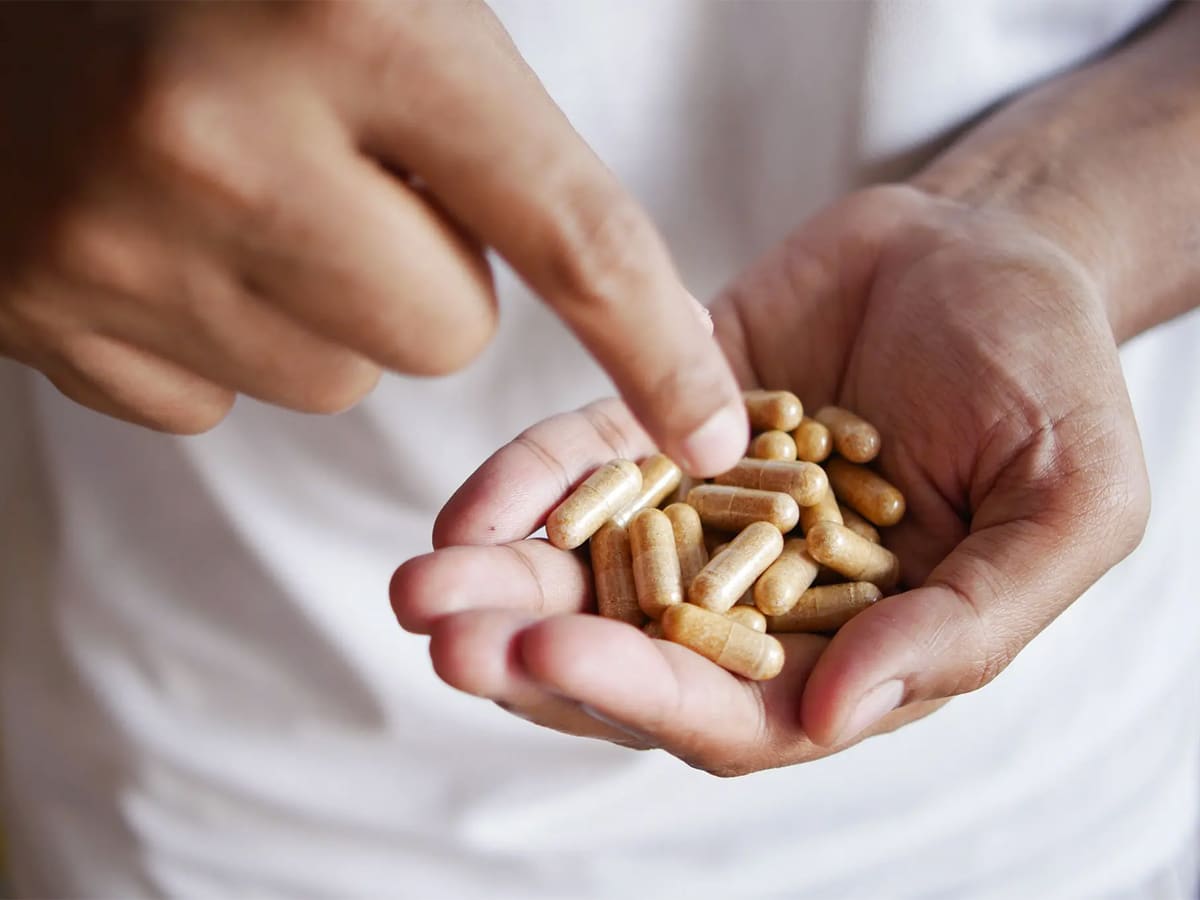
How to Take Ashwagandha Supplements
Ashwagandha root extract/withania somnifera comes in various forms, but most commonly you’ll find:
- Ashwagandha tablets
- Ashwagandha powder
Typically, a daily dose of around 600 mg of ashwagandha is recommended to feel the effects of ashwagandha. Of course, our bodies are all unique. So, what works for one might not work for another. That’s where working with a healthcare professional comes in. They can give you personalised advice on the right dosage so you can truly begin to feel the effects of ashwagandha.

Where to Buy Ashwagandha
You can find Ashwagandha supplements in a few places, such as:
- Health Food Stores
- Amazon
- iHerb
- Chemist Warehouse
- Priceline
But here’s the golden rule: always go for the good stuff. Look for reputable brands that offer high-quality products. After all, you want the best for your body, right?
Pro tip: Also look for supplements labelled Indian ginseng or Withania somnifera ashwagandha – it’s Ashwagandha root extract but just in a different name.
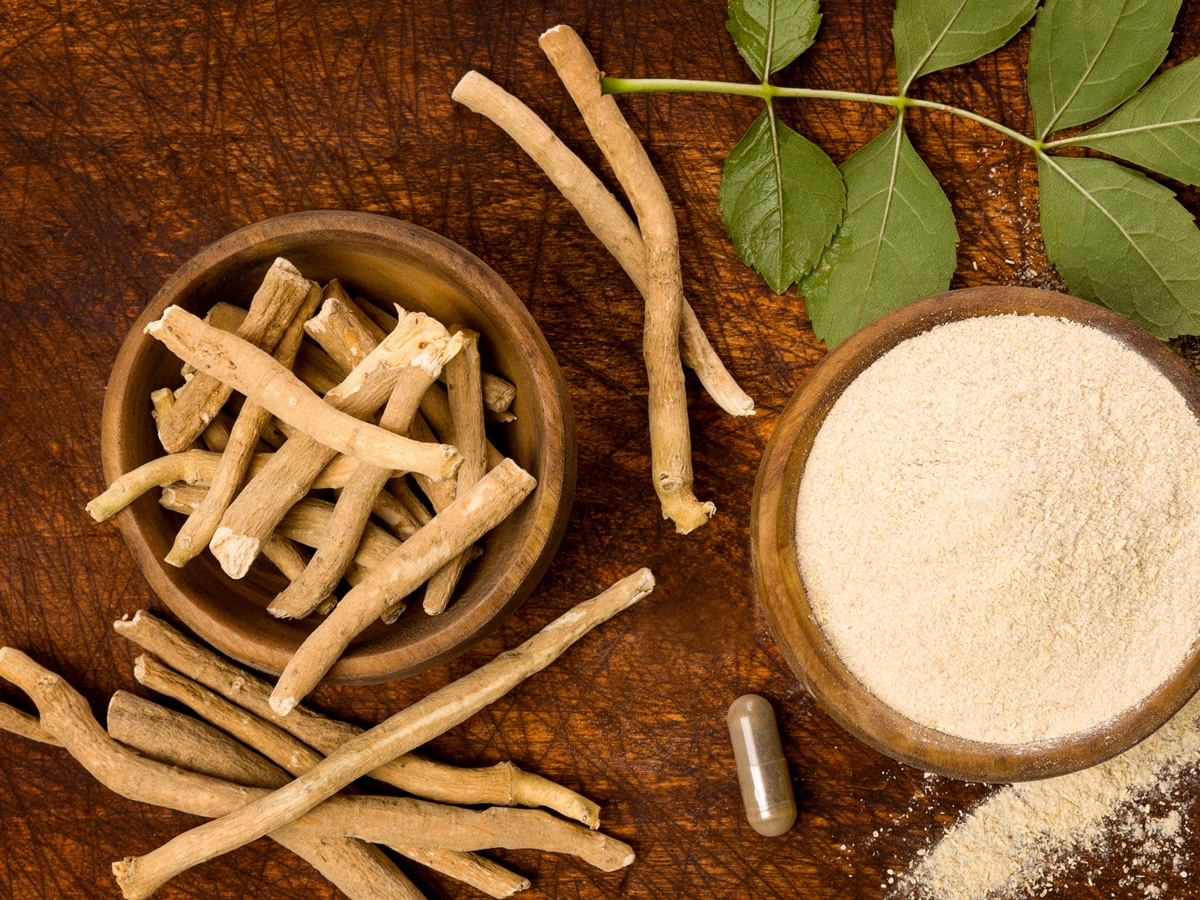
Risks and Side Effects of Ashwagandha Root
While there are plenty of health benefits of ashwagandha, it’s not without potential risks and side effects, such as:
- Tummy Troubles: Some people might feel a bit uneasy in the stomach or experience digestion problems when taking Ashwagandha.
- Feeling Dizzy: Rarely, Ashwagandha may make you feel a little lightheaded, especially if you take too much or if you’re sensitive to it.
- Possible Allergies: Though not common, Ashwagandha may cause an allergic reaction, which could show up as itching, a rash, or other allergic symptoms.
It’s super important to chat with a healthcare professional before you start taking ashwagandha or any new supplements. While ashwagandha shows promising results in reducing stress and anxiety and other health benefits, more studies are needed, especially when looking at long-term consumption of ashwagandha. A doctor can give you personalised advice, make sure it’s a good fit for you, and help you stay on the safe side of your wellness journey.
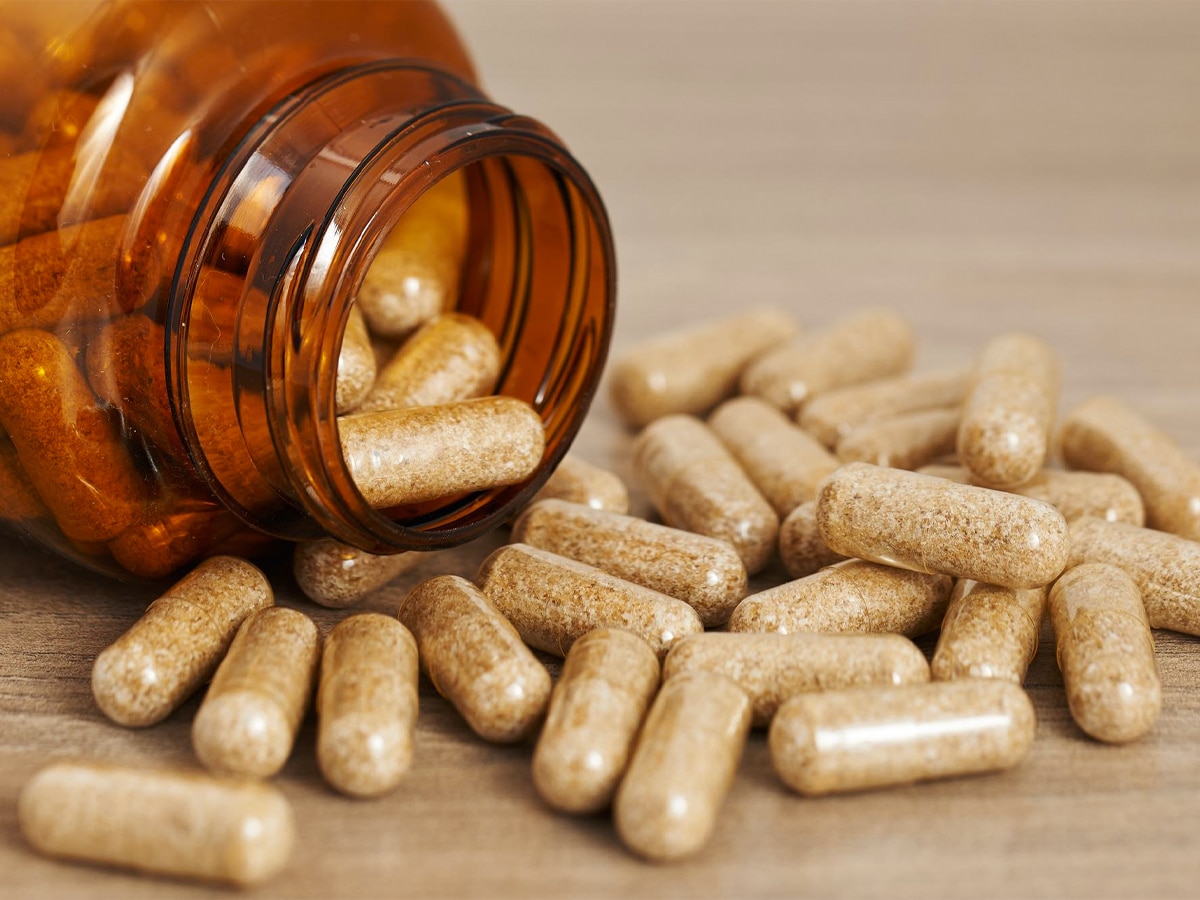
Things to Consider Before Taking Ashwagandha
- Consult a Doctor: Before starting Ashwagandha, consult a healthcare professional for personalised advice, especially if you have underlying health conditions or take medications.
- Stick to Recommended Dosage: Follow recommended dosages; more isn’t always better. Your healthcare provider can help you find the right amount per day for your needs.
- Be Patient: Ashwagandha’s effects may take time. Stay patient and watch for any unusual symptoms or allergic reactions.
- Consider Holistic Wellness: While Ashwagandha has plenty of benefits, it should be taken as part of a holistic approach to health. Healthy adults should combine it with a balanced diet, exercise, and other healthy habits for the best results.
Alternatives to Use of Ashwagandha
Want to boost your physical and mental health or reduce stress and anxiety but searching for something a little different to ashwagandha? Don’t worry! We’ve got ya sorted with the below articles:
- A Guide to Testosterone Boosters
- Daily Protein Guide
- Health Benefits of Vitamin D
- Steps to Manage Your Stress and Anxiety
Disclaimer: Man of Many is mainly for information purposes only. Materials on this website are not intended to be a substitute for professional advice, diagnosis, medical treatment, or therapy. Never disregard professional psychological or medical advice nor delay in seeking professional advice or treatment because of something you have read on this website. Read our full editorial policy here.
Benefits of Ashwagandha for Men FAQs
If you’re using ashwagandha as part of your daily health routine with other supplements, taking it in the morning is a good idea. But be careful: ashwagandha may cause an upset tummy if you take it on an empty stomach.
Yep! Ashwagandha is often labelled as an adaptogenic ingredient, mainly known for reducing the stress hormone cortisol and its effects on the body and mind. But it doesn’t stop there; among its many health benefits, Ashwagandha is also believed to raise testosterone levels in men.
Absolutely! Ashwagandha is known for its calming effects on the mind. It’s been seen in clinical trials to be quite effective in reducing anxiety, especially in cases like agoraphobia, which is anxiety in crowded places. Ashwagandha can help alleviate the typical symptoms of anxiety.














